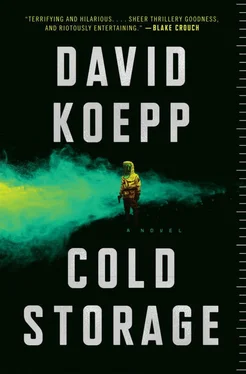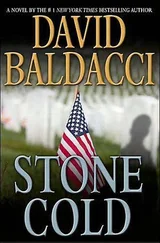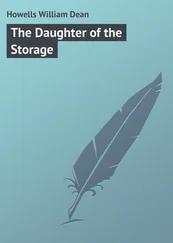As he drove—where to, exactly?—he started thinking about the deer in those last gutshot moments, when it seemed to be spitting at him, and he got enraged all over again. What exactly had gotten to him about that? Was it the temerity of the animal to accuse him of not being able to handle so simple an act as a mercy killing? Was that thing calling him inept, unable, telling him he couldn’t hold up his end of the deal? Something had triggered a rush of bad, inadequate memories, but he’d taken care of that, hadn’t he? He’d answered any questions quite definitively, with one or two or, okay, fine, four more squeezes of the trigger. No, I am capable. Quite capable, thank you. I settled that shit but good, and hey, what about my parents’ fucking cat while I’m at it?
Mr. Scroggins was fourteen years old and had been sick for the last, say, twelve of those. He was a diseased and expensive pet; the bills from the animal hospital were about $400 just since the beginning of this calendar year. Though his father would have taken out a second mortgage to keep that ugly cat in the world, Mooney knew the toll the financial strain was taking on his mother. Plus, c’mon, life couldn’t be any kind of fun for Mr. Scroggins either, all riddled with disease and shit. Mooney was headed home with a dead deer in the trunk, a loaded .22 that he knew how to use, and a head full of righteous killing fury.
He liked it.
Mr. Scroggins was executed down at the public lake access boat ramp, where the shot might not be heard. Mooney tossed him in the trunk with the mangled deer, and so began the forty-four-hour odyssey of manly pride and horrified remorse that eventually brought Mooney to the grassy knoll here at Atchison Storage. All he wanted to do was give these two innocent dead animals the Christian burial they deserved.
But now Mr. Scroggins was alive again, standing on top of the once-dead deer in the trunk of the car, and he seemed royally pissed off.
The deer, whose mortal injuries had been far worse, flailed all four legs at once, trying to stand up in the trunk, but its broken limbs collapsed underneath it. Mr. Scroggins staggered off him but caught himself on the rear lip of the trunk and clung there, hissing. It had probably been a long ride for these two, and they were sick of each other.
Motivated by something other than normal locomotive powers, the deer vaulted itself out of the trunk. It fell flat onto the gravel, its legs splaying outward, cracking again—there had to be a couple new breaks in there somewhere. Then it hauled itself up on all fours, bounded up the hill, and just kept running upward, disappearing into the night.
Mooney had staggered back when the trunk first flew open, and good thing he’d put six or seven feet between himself and the car, because Mr. Scroggins just missed him when he sprang off the rear bumper, claws extended, half jaw snarling and spitting.
Apparently, Mooney’s apology had not been accepted.
Mr. Scroggins landed on all four paws, turned as if in reaction to a sound, and ran up the hill in the same direction the deer had gone. But the cat stopped at the first tree he reached, a tall pine, and threw himself at it, catching hold of the bark and starting to climb. Mooney got up and walked closer, staring in amazement as the cat climbed the tree with incredible determination. There were no stops, no hesitation, no second thoughts, only upward movement. The branches thinned near the top, but still the dead cat climbed, swaying on this one, nearly breaking that one, but losing no speed and no sense of purpose. He reached the top of the tree, the trunk spindly up there, but still strong enough to hold an eight-pound cat. Possibly seven and a half after recent events.
Mr. Scroggins finally stopped at the top when there was nowhere else to go. He paused and took a look around, as if to make sure that this was it, there really were no new mountains to climb, not for him, anyway. Satisfied, he opened his mutilated jaws as wide as they would go. He turned back to the thinning central trunk of the tree, to its tippy-top, and snapped his head forward, impaling himself on the treetop. He squeezed, with a furious might and indignation, sinking his fangs into the bark as far as they’d go, clamping himself down there.
From below, Mooney watched, slack-jawed. You almost never see this kind of behavior from a common house cat.
Thus secured to the very top of the very tall tree by his embedded fangs and his commitment to his cause, Mr. Scroggins began to grow. His remaining cheek billowed, his legs swelled up like four-by-fours, his stomach ballooned out in both directions, and if you were close to him, which thank God you were not, you would have heard his tiny ribs snapping like matchsticks, one after the other, broken by the tremendous gastric pressure from within.
Mooney was unaware of even the existence of Cordyceps novus, much less how it had apparently come to penetrate the trunk of his car. He just stared, dumbfounded, at the swollen, once-dead cat at the top of the tree. “How in the name of Jesus—”
Mr. Scroggins burst.
Had Mooney not felt the need to express his understandable amazement in audible terms, his mouth would not have been open when the cat guts hit him in the face.
The central hallway through the ground-floor level of Atchison Storage was two hundred feet long, with white louvered garage doors running the length of it, thirty per side. There was a pristine beauty to it, if you were into symmetry and the vanishing point, that optical illusion that makes a pair of infinite-seeming parallel lines appear to intersect, far on the horizon. If you had to walk that hallway and a few others like it a dozen times every night for your job, it was boring as shit.
But tonight, Teacake was walking it with Naomi. They were headed for the elevator at the other end, impossibly far away. Naomi had the picture she’d taken of the schematic up on her phone, and she scooched the image around, finding the elevator on the map and sliding it down to sub-basement 1, where the tube ladder’s top entrance point seemed to be.
Teacake was nervous-talking.
“Gets down to it, the whole thing is just a terrible idea. Don’t pay for storage. Don’t ever pay for storage. I’ve seen a half a mountain of shit come into this place, and almost none of it ever comes out, except for the super-short-term stuff. People pay anywhere from forty to five hundred dollars a month, depending on the space and the climate controls, and it’s all for garbage they one hundred percent do not need.”
“That’s a little judgmental, isn’t it?”
“Not really. These are sick people, man, most of ’em, and the storage place, they’re slick, you know, it’s sales, they know what they’re doing. They handle it like they’re slinging rock on the corner. Take for example, somebody’s gotta move, right? They get foreclosed on or whatever. This place gives ’em the first thirty days free. People figure, ‘Hey, cool, I don’t have to throw nothin’ out, I’ll just move some of my extra stuff in here, figure it out for a month, no rush, then I can eBay some of it and toss the rest without ever paying a dime.’ But that never, ever happens. Nobody moves outta here. So your ratty couch that you don’t even like anymore and your old Christmas decorations and your parents’ sheets that you kept after they died for some reason—now they’re all just exhibits in your sad museum. Oh, hey no, that don’t fly, fuck nugget.”
He’d stopped abruptly, seeing something on one of the white doors. He went to a storage closet, unlocked it, took out a heavy-duty bolt cutter, and returned to the third unit back on the left. There was a brass padlock hanging from the latch, sticking up at an angle—an extra lock put on there by the renter. Teacake snapped it off with one squeeze of the bolt cutters.
Читать дальше
Конец ознакомительного отрывка
Купить книгу











